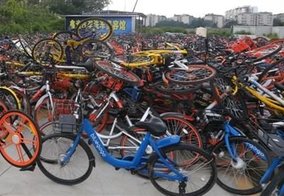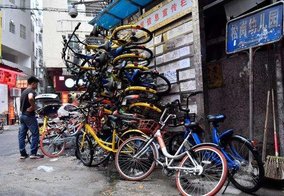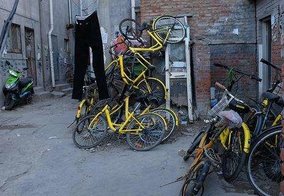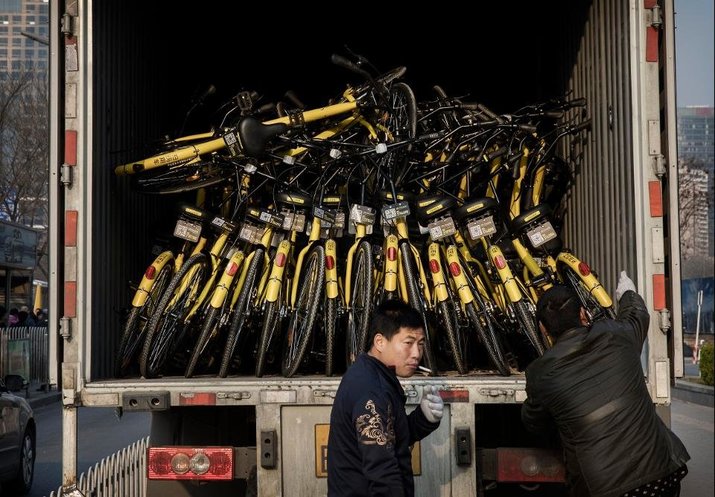A country previously known as the “kingdom of bicycles” has recently been flooded by some 16 million brightly coloured bikes that are redesigning the urban landscape.
China’s bike-sharing has boomed in the last year thanks to several start-ups whose smartphone apps allow people to get hold of a bicycle for as little as one yuan an hour. Most bikes can be spotted through a GPS-tracking device installed on them and the charges are paid via digital wallets (WeChat and Alipay).
Among the most popular start-ups, the silver and orange “Mobike” and the yellow “Ofo” can already be seen in several countries in South-East Asia, Europe and North America, where people start questioning how sustainable and how profitable this business actually is.

Illegal Parking
Piles of yellow bicycles dumped outside subway stations or other crowded places in town is now a very common sight. In fact, none of these start-ups uses fixed docking stations, meaning that the bike can be left anywhere at the end of a ride: in public squares, on narrow alleys, on sidewalks, along streets, even in the car park below your apartment!
The main problem appears to be that Chinese cities are not bike-friendly; instead they were designed for the growing number of cars that are now clogging city roads.
Stolen Bikes
Thousands of bicycles have been reported as stolen or damaged for either personal use or selling parts of them. Vandalism includes hanging bikes on trees, throwing them into rivers and lakes and burying them in construction sites.
Road Safety
Hordes of cyclists have taken over the streets, making the already poor Chinese road safety even more challenging. Many users are inexperienced riders or children who don’t follow the basic traffic rules and shouldn’t be allowed to cycle.



Electronic Fences and “Bike Hunters”
To address citizens’ complaints, local governments issued new regulations and guidelines for both bike-sharing companies and their riders.
Some cities banned the use of shared bicycles in the most popular areas during public holidays. Guidelines also encourage bike-sharing firms to set up electronic fences to properly round them up.
On the other hand, some companies now require users to be older than twelve. To address the problem of illegal parking, some have started to reward users who report misplaced bikes with app credits.

While the idea of car-free cities is very appealing, all these annoyances have raised questions about the sustainability of the industry and deeper debates about social decay. Additionally, from a business point of view the industry will be having constant costs, with the growing number of users and damaged bicycles.
Interested in more stories from the Middle Kingdom? Why don't you subscribe to our monthly newsletter and follow us on Facebook, Twitter and Instagram? For any questions or comments, please get in touch with us directly!
- 116 reads
- Like this







